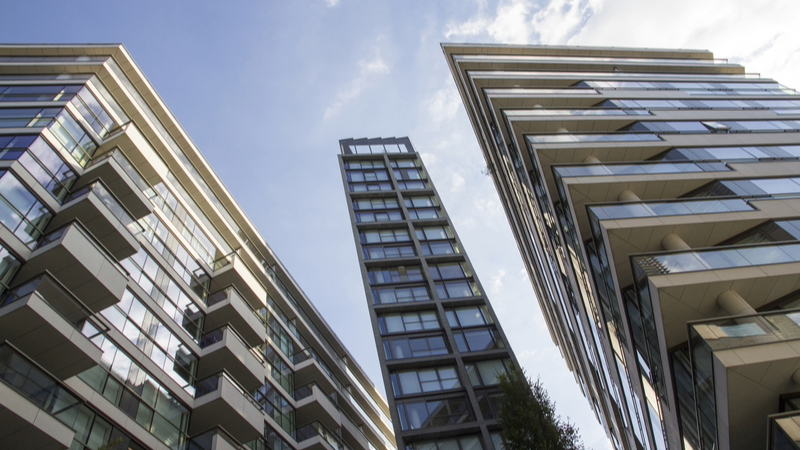Earlier in the week the industry was shaken following the collapse of Assent, one of the UK’s largest building control firms. Tim Hillier and Olivia Jenkins explain the options available after a building control body ceases trading.

Since the Building Safety Regulator (BSR) became the building control authority for higher-risk buildings on 1 October 2023, developers in England have been unable to choose their building control body unless they satisfied a series of statutory “transitional provisions”, which prevented their building work from being overseen by the BSR.
What higher-risk buildings developers are unlikely to have accounted for is a scenario in which their higher-risk building work was captured by those transitional provisions – such that their work was not overseen by the BSR – but their chosen registered building control body subsequently becomes insolvent or ceases to act.
The consequences can be costly, following reports that a number of private sector building control bodies failed to register as building control approvers before the statutory deadline, or have since not maintained their registrations or become insolvent.
Statutory provisions
Under the Building (Higher-Risk Building Procedures) (England) Regulations 2023 (HRB Regulations), the BSR did not become the applicable building control authority for higher-risk building work if:
- an initial notice or full plans were given to the relevant local authority in connection with that work before 1 October 2023;
- the relevant local authority was notified that the higher-risk building work had ‘sufficiently progressed’ by 6 April 2024; and
- the building control body named on the initial notice registered to become a registered building control approver (which replaced the role of approved inspectors) before 6 April 2024.
If met, these criteria would enable:
- the developer’s retained building control body to continue overseeing the applicable higher-risk building work until completion;
- the applicable building regulations to be those in force when the initial notice was submitted to and accepted by the relevant local authority; and
- the initial notice to remain in force.
In those circumstances, there is no need to apply to the BSR for approval to continue the work.
Registered building control approvers
If, however, the building control body named on the initial notice either failed to register by 6 April 2024, subsequently ceased acting as a registered building control approver, or became insolvent at any time after registering:
- the initial notice covering the higher-risk building work must be cancelled;
- the BSR becomes the building control authority for any higher-risk building work that is not the subject of a final certificate accepted by the relevant local authority when the initial notice was cancelled;
- a new application for building control approval must be submitted to the BSR in connection with any work that is not covered by an accepted final certificate; and
- all higher-risk building work becomes ‘unauthorised’ and must stop until the BSR has validated an application for building control approval for that work (via the BSR’s Gateway 2 process).
Unless the BSR notifies otherwise, it will validate applications for building control approval, at which point work can restart, and it will then be assessed for approval.
Under section 5 of the HRB Regulations, the BSR must determine applications for approval within 12 weeks, unless an extension is agreed.
In practice, significant delays have been experienced, which the Ministry of Housing, Communities and Local Government is understood to be working towards mitigating.
Registration hurdles
Registered building control approvers include businesses, sole traders and partnerships, while registered building inspectors are individuals, often employed by registered building control approvers.
The process for securing registration is stringent and includes scrutiny surrounding competency requirements. Registration and annual maintenance charges are attached to both roles, although the associated costs are far greater as a registered building control approver than as a building inspector.
It is a criminal offence to act as a registered building control approver or building inspector without registration, and to act outside of the limits of your authorised registration, which is punishable by a fine (on summary conviction).
The high cost, competency threshold and risk of criminal sanction now associated with registration are likely to have played a part in deterring many previously retained approved inspectors from maintaining their registration.
Inevitable uncertainty
Given its purpose, it is unlikely that the building control regime for higher-risk buildings intended work captured by transitional provisions and close to completion to be ‘caught out’ by the decision of any registered building control approvers ceasing to act post-registration.
Usefully, the BSR and local authorities have certain discretionary powers in exercising their building control functions at higher-risk and non-higher-risk buildings, respectively.
However, there is inevitable uncertainty surrounding when any such discretion will be exercised, and all those involved in the commissioning, design and construction of building work will need to continue to monitor the statutorily applicable building control regime, including the status of their registered building control approver, as their work progresses.
Failing to do so could have widespread consequences.
Tim Hillier is a partner and Olivia Jenkins a senior associate in the Construction Disputes department at Trowers & Hamlins.
Comments
Comments are closed.












Good but there is also those initial notices for non high rise buildings where the BSR is not involved. With all the new regulation, if the building control body goes under, a new application is needed and this sounds like “unregulated business” despite if they are registered or not. The new system falls short here.
What is the consequence of Assent’s collapse on non-HRB’s? There are many non HRB projects affected by their demise and left in limbo as to what the next steps should and could be.
look forward some other thoughts on non HRBs